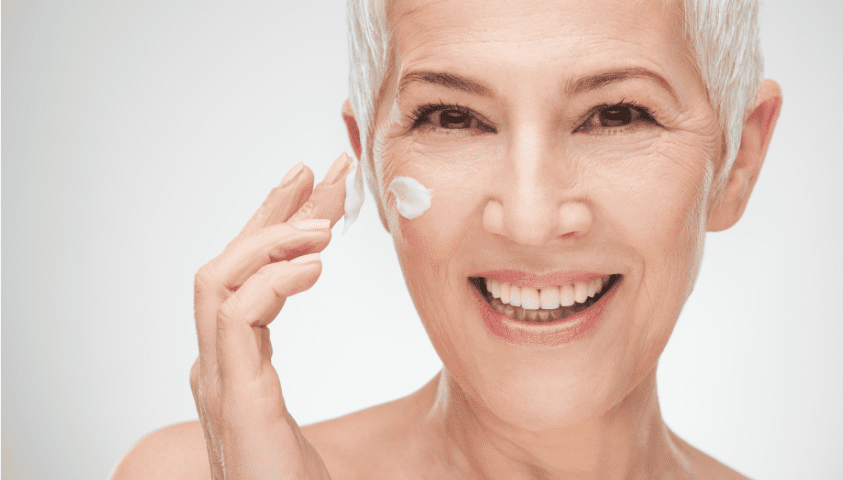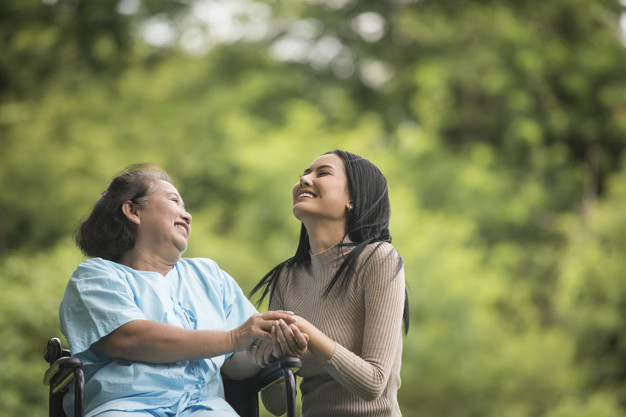Importance of Skin Care for Senior Adults

Companion Care Services – Making Lives Healthier, Happier, and Easier!
March 1, 2021
Accelerate Healing and Recovery with Home Care Nursing Services
April 7, 2021Skin is the largest organ of the human body and has the highest exposure to the outside environment which makes it highly vulnerable. This is why, there are a couple of factors that impact the skin in ways that can either age it faster or cause skin reactions, so it is essential to take good care of the skin to help prevent damage and deterioration of the skin protein. Factors that contribute to premature aging of the skin include:
- High exposure to the sun
- Extreme winter conditions
- Failing to keep skin well moisturized and nourished
- Lack of exercising
- Alcohol consumption or smoking
- Genetic skin disorders
How does “aging” in specific affect skin?
Aging not only causes changes in our body but also affects our skin which is highly necessary to keep healthy. This requires changing our daily routines to better meet those needs.
With time, our skin becomes more sensitive due to the degradation of keratin protein that makes up our skin. This protein provides the crucial protection needed for your internal body. As the body starts aging, the skin becomes more thin, dried and also it loses flexibility. This results in easy damages to the skin through injury, infections, and other various types of issues. However, severe skin problems could lead to health-risked issues that could affect a seniors’ life on a high scale.
- Skin Viruses: Such as shingles.
- Skin Cancer: Growth of abnormal skin cells. Cancer of the skin.
- Stasis Dermatitis: Itchiness and dryness of the skin.
- Skin Infections: Parasitic infestations or bacterial infections.
- Exfoliative Dermatitis: Skin peeling, shedding, and redness that affects multiple or large areas of the body.
- Senile Purpura: Purple-colored spots and discoloration as a result of the thinning of skin and fragility of the blood vessels that lie beneath.
Skin Care Tips for Seniors from Access-HealthCare Services
- Protection against the sun: Individuals of all ages must protect their skin from the sun, but as the skin gets thinner and more vulnerable to the environment, it is highly important to take good care of the skin. It is necessary for seniors to apply sunscreen consisting of an appropriate amount of SPF and well-covered light-colored clothing along with hats and sunglasses for protection against the harsh UV sun rays.
- Using a Humidifier: Dryness is a very common condition in elderly individuals which causes redness of the skin, chapping, and cracking of the skin which can lead to bleeding. A humidifier keeps the air moist that helps the skin retain its moisture and reduce dryness.
- Gentle Baths: Since the skin is so sensitive and fragile, it is important to avoid scrubbing the skin when having a bath. Avoiding harsh soaps and overly-hot showers and opting for Luke-warm water baths is safe and efficient.
- Drinking plenty of Water: Hydrating the body is not only important for the skin but is also essential for the smooth functioning of bodily functions.
- Quit smoking: Smoking causes harsh effects on the skin by impairing the blood flow to the skin and causing discoloration or loss of skin pigmentation along with extreme dryness. Smoking also leads to the depletion of essential nutrients to maintain the health of the skin.
Every individual has their own unique skin quality which in seniors is necessary to monitor before implementing any daily skincare routines. Some may have more skin problems than others, some may have allergic skin reactions which may not be usual on observation. Whatever the situation may be, there are resources, devices, care-takers, and abundant support available at Access-HealthCare Services.
Get your individual assessment today or call us at 613-596-4929 for in-home health care service in Ottawa or email us at E-mail – info@access-healthcare.com
Follow Us Facebook | Instagram | Twitter







